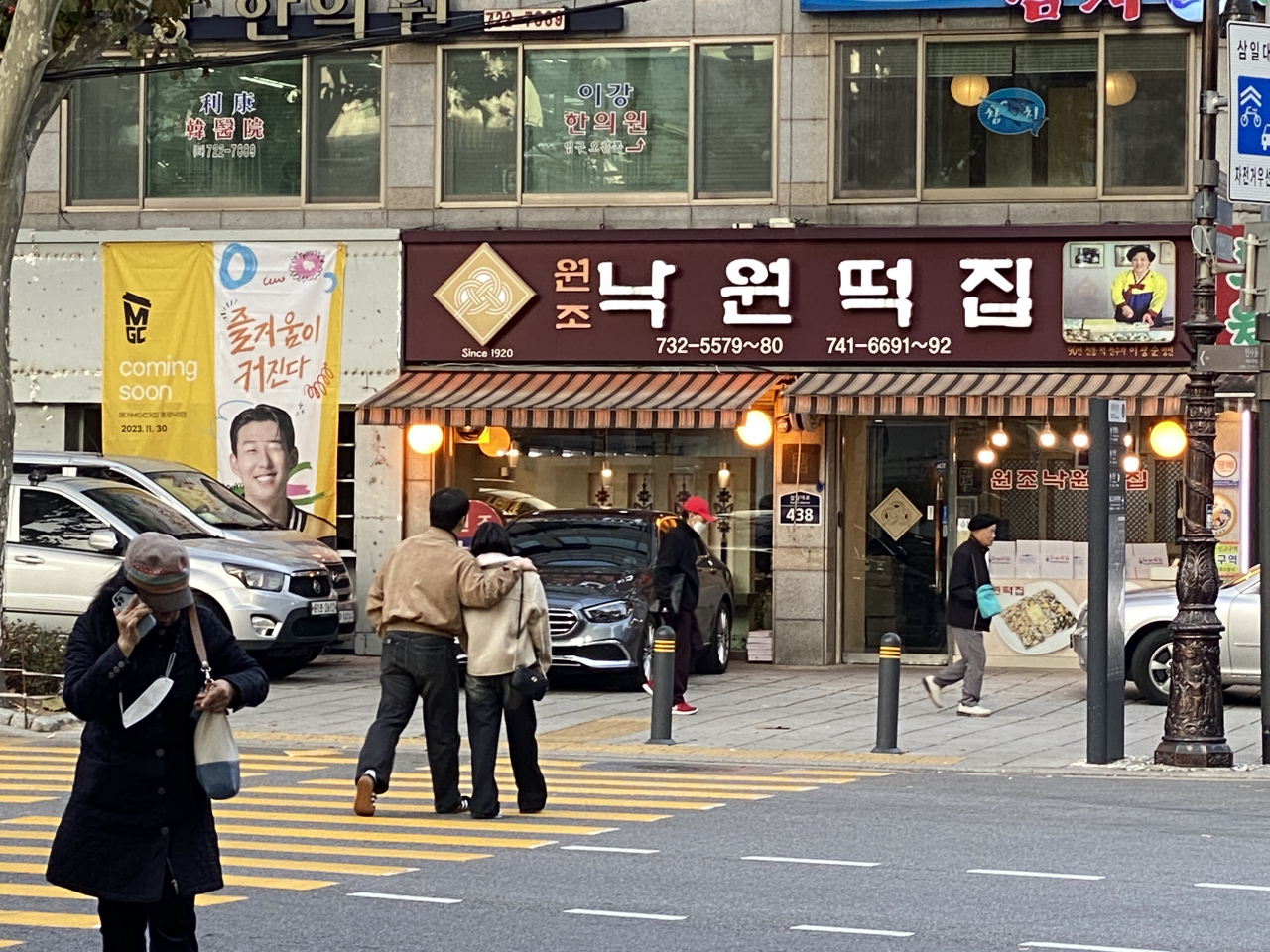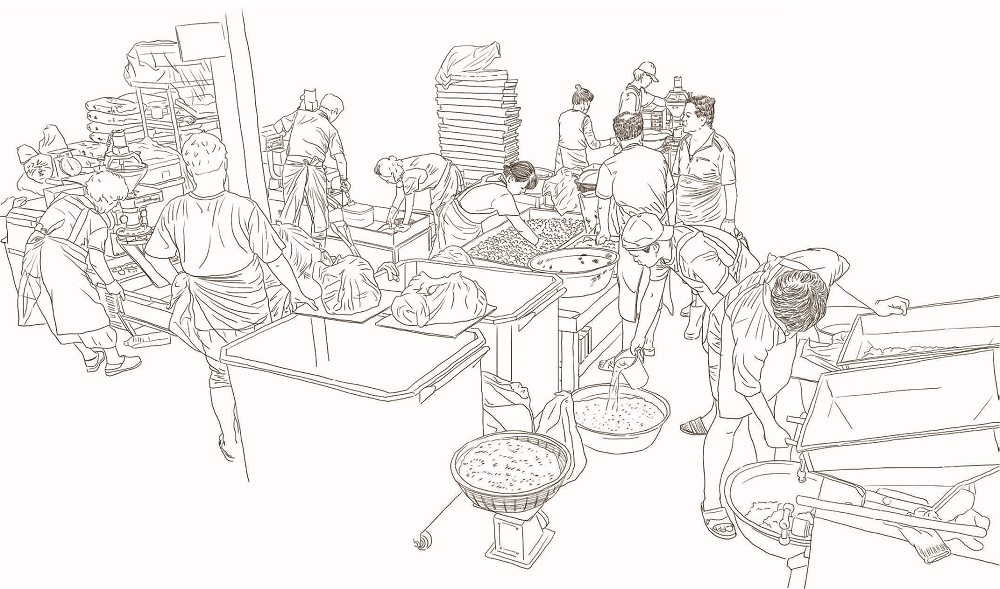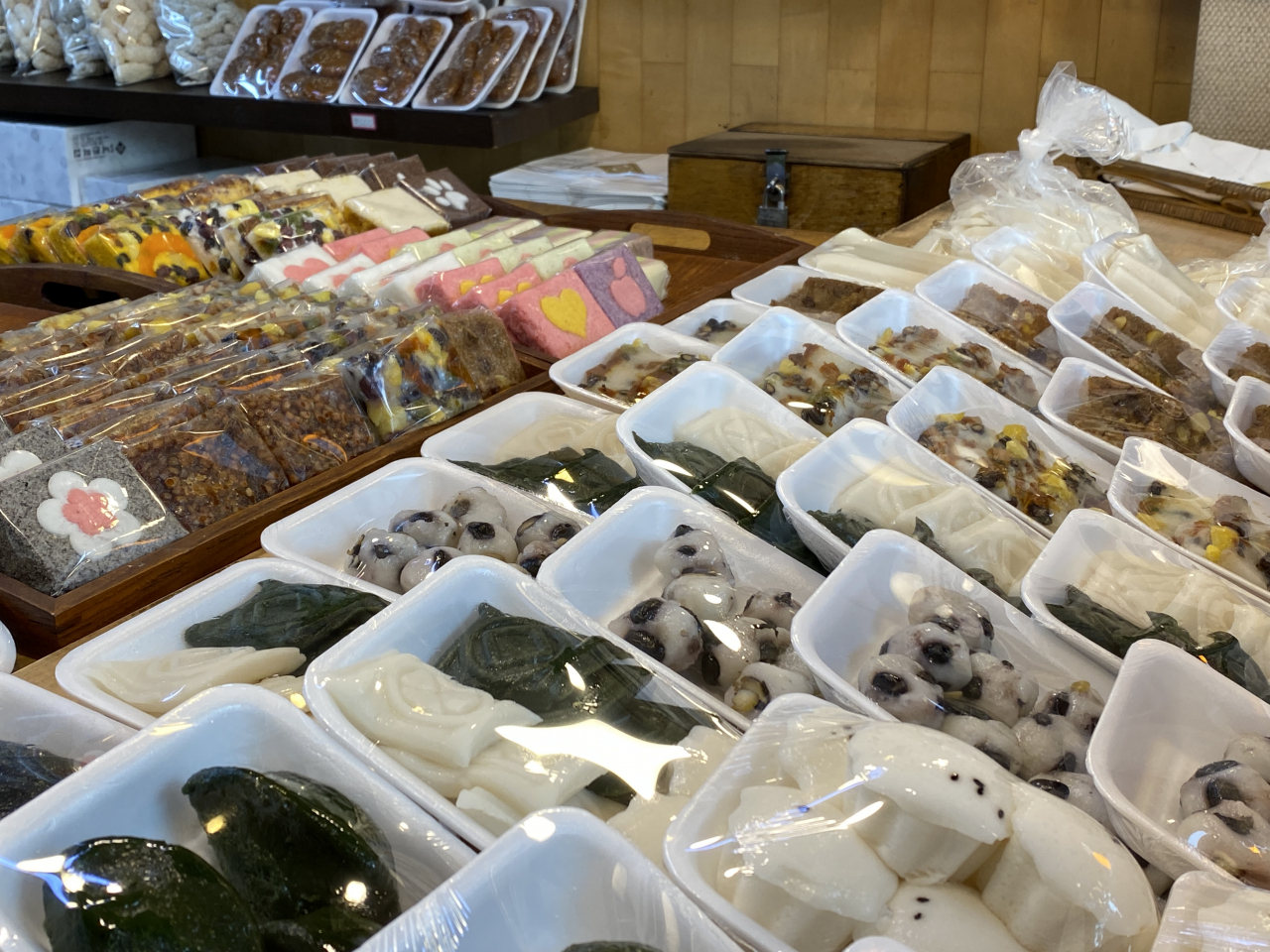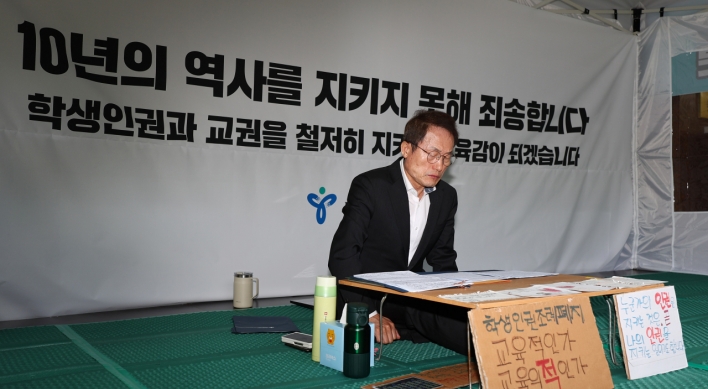[From the scene] Nakwon-dong's storied rice cake store
By Hwang Joo-youngPublished : Nov. 20, 2023 - 11:34

Nakwon Tteok House, a rice cake store in Nakwon-dong in Jongno-gu, central Seoul, traces its roots back to the waning years of the Joseon era (1392-1910). The story of Nakwon Tteok House begins with Go I-ppo, who sold rice cakes as a street vendor after learning to make tteok from the court ladies of nearby palace Changdeokgung.
Go's rice cake business continued with her daughter Kim In-dong, who was born in 1919. After the 1950-1953 Korean War, Kim moved the business to its current location in 1956 and handed down the family business to her daughter Lee Gwang-sun. Today, Lee and her husband Kim Jeong-gui run the Nakwon Tteok House with their son, Kim Seung-mo.
The Nakwon Tteok House's place in history has been recognized by the city government. In 2014, the Seoul Metropolitan Government listed the rice cake store as among the "Seoul Future Heritage."
“Nakwon Tteok House has served as an observer, witnessing the past, present and future of Seoul. It has contributed to transforming tteok from a royal treat to everyday people’s favorite,” the Seoul Museum of History says on its website.
The rice cake store has served the rich and famous, from Hyundai Group founder Chung Ju-yung to former presidents.
“Officials from Cheong Wa Dae often made calls to order rice cake. We served more than eight presidential offices but we never heard a single complaint," Kim, 81, said. "We're proud, of course, that our rice cakes are loved by higher-ups, but our biggest happiness comes from serving everyday people."
Although Nakwon Tteok House has been approached by a number of department stores with business proposals, Kim and his wife decided not to expand their business.
"We make tteok by hand rather than using machines," Kim said. "But they were interested in mass production, which would compromise quality."

As the rice cake store became famous, hundreds of other stores began using its name without permission. However, Kim doesn't blame them.
"While we registered our brand name with the patent office in the late 1990s, we've never asserted any right against them. How can I blame those owners who make a living from daily tteok sales?" Kim said.
At its peak, Kim's rice cake plant that stretches across four blocks of the Nakwon-dong streets began operating at midnight to meet the daily orders. However, as the rice cake industry began to shrink with the rise of bakeries in the early 2000s, production has also shrunk.
"We used to use 800 to 1,200 kilograms of rice per week. These days, however, we barely use 80 kilograms of rice per day," Kim said.
Despite the societal decline in rice cake consumption, the rice cake store had managed to continue mostly on orders from city governments and companies until the COVID-19 pandemic struck.
As strict social distancing measures during the pandemic meant no social gatherings, rice cake consumption plummeted, and most rice cake stores in the Nakwon-dong streets had to close their doors.
Nakwon Tteok House may see a similar fate. The couple are considering giving up their rice cake business, Kim said.
"Aside from the soaring labor costs and ingredient prices, we are struggling to find new workers. Young people do not want to work in the rice cake industry," Kim said.
Today, the rice cake store's clients are mostly older people who reminisce on memories through the rice cakes. Only a few young people drop by while hanging out in the Jongno area.

Kim said he regrets seeing the rice cake industry wither over time.
"What makes me sad the most is that the culture of sharing tteok with neighbors, friends and colleagues on special occasions is fading away," Kim explained.
"I hope the economy recovers so more people would visit us and order some tteok to celebrate their special moment.”
Nakwon Tteok House's signature offerings include mugwort tteok with soybean powder and baram tteok filled with bean paste. Prices range from 2,000 to 4,000 won per packet. Orders can be made by calling or visiting the store.





![[KH Explains] No more 'Michael' at Kakao Games](http://res.heraldm.com/phpwas/restmb_idxmake.php?idx=644&simg=/content/image/2024/04/28/20240428050183_0.jpg&u=20240428180321)













![[Herald Interview] Mistakes turn into blessings in street performance, director says](http://res.heraldm.com/phpwas/restmb_idxmake.php?idx=652&simg=/content/image/2024/04/28/20240428050150_0.jpg&u=20240428174656)
